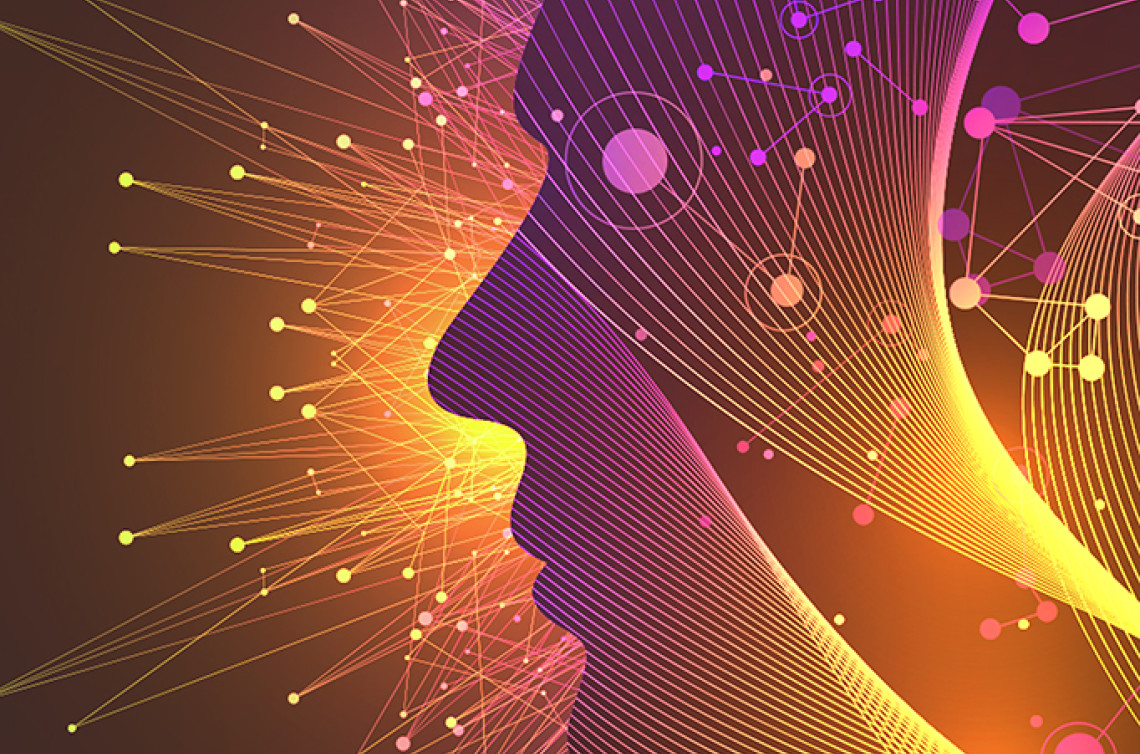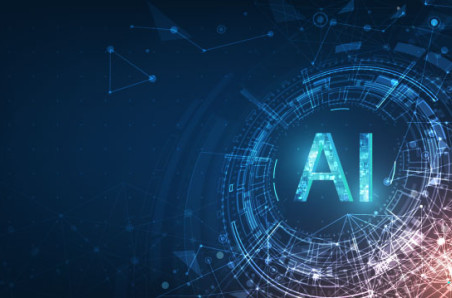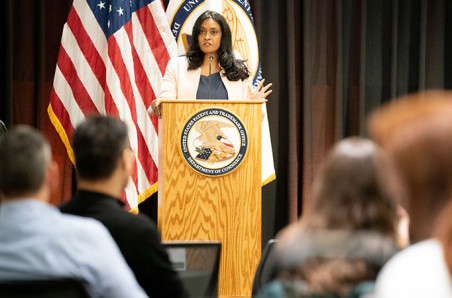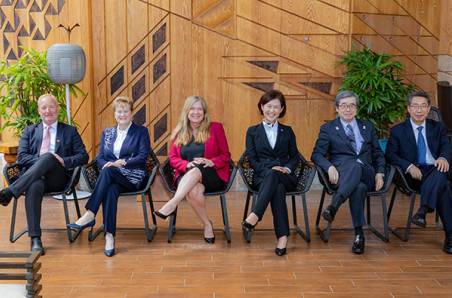
Incentivizing and protecting innovation in artificial intelligence and emerging technologies
Artificial Intelligence (AI) is a transformative technology that impacts our economy and society in exciting ways, including some that have the potential to dramatically affect our day-to-day lives and benefit our social wellbeing, such as using AI to help discover breakthroughs in healthcare and tackle climate change.
The USPTO plays an important role in incentivizing innovation in critical technologies such as AI and other emerging technologies (ET) (e.g., quantum computing, synthetic biology, blockchain, precision medicine, and virtual reality), and maximizing these innovations’ widespread impact to enhance our country’s competitiveness, economic prosperity, and national security, and to solve world problems.
In recent years, we have actively engaged with our stakeholders on AI and ET, and have had the chance to discuss the importance of intellectual property (IP) rights as an incentive to foster innovation in these critical areas. We have published several reports on AI, gathered feedback through requests for comments, and held several events focused on AI and ET. Our work aligns with and supports the mission of the National AI Initiative to ensure continued U.S. leadership in AI research and development, and addresses some of the recommendations from the Final National Security Commission on Artificial Intelligence (NSCAI) Report to Congress.
To build on these efforts, the USPTO is forming a partnership (AI/ET Partnership) with the AI and ET communities, including, for example, academia, independent inventors, small businesses, industry, other government agencies, nonprofits, and civil society. The AI/ET Partnership will provide an opportunity to bring these stakeholders together to share perspectives, experiences, and insights, and foster opportunities to collaborate on the intersection of intellectual property and AI and ET. Through our AI/ET Partnership, we will continue to gather useful input from the AI and ET innovation communities.
That is why, as we recently announced in our Federal Register notice, we will be holding an upcoming series of AI/ET Partnership stakeholder meetings. These public meetings will highlight our AI and ET-related initiatives and will explore various IP policy issues impacted by AI and ET. These meetings will also include discussions on how AI and ET are being leveraged within the USPTO to serve our stakeholders, while fostering public trust by promoting trustworthy and responsible use of these technologies.
In the inaugural meeting on June 29, we will have panel discussions on important patent policy issues such as subject matter eligibility, disclosure requirements of AI inventions, and the implications of AI's increasing role in the inventive process in some fields. We will also discuss the effectiveness of current patent laws and USPTO guidelines that incentivize innovation and investment, and ways in which the patent system could evolve to encourage and protect AI and ET inventions. Speakers will explore data from patent filings and how they inform innovation trends in these critical technology areas.
The purpose of these meetings is to hear from the innovation community and to promote greater awareness, openness, and inclusivity on our ongoing and future AI and ET efforts. Our takeaways will shape our future work on AI and ET policy and will inform the broader U.S. government's approach to AI and ET.
Whether you are an independent inventor, small business, or in academia, industry, federal agency, or at a nonprofit, we want to hear your views. We hope you can join us at an upcoming AI/ET Partnership meeting or watch the recordings, which will be available on our AI/ET Partnership webpage. We welcome your feedback at any time and encourage you to email any questions or ideas of topics for discussion at future meetings to aipartnership@uspto.gov.
Engage with the Director and join the conversation on our social media channels.






